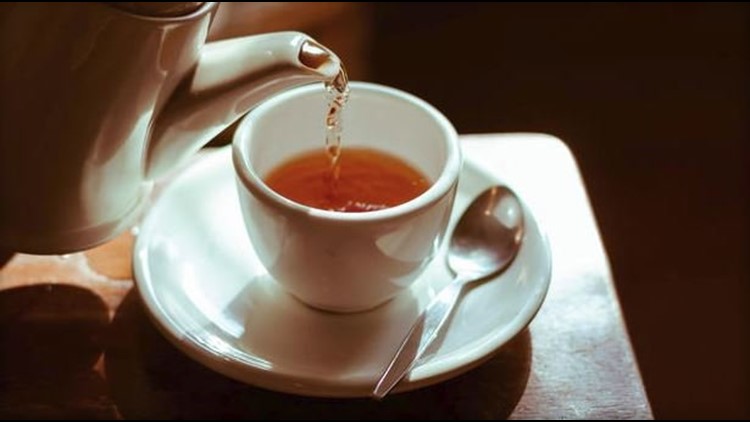(CBS News) — A word of caution to tea lovers: Let your cuppa cool a bit before taking a sip. A new study from China finds that drinking tea at extremely high temperatures may increase a person’s risk of esophageal cancer, especially if that person also consumes too much alcohol and is a smoker.
Researchers found that people in China who consumed scalding tea — and also smoked tobacco and drank excessive amounts of alcohol — had a five times greater risk of esophageal cancer than people who had none of these three habits, according to the findings. [10 Do’s and Don’ts to Reduce Your Risk of Cancer]
China has one of the highest rates of esophageal cancer in the world, according to the study, published Monday in the journal Annals of Internal Medicine.
In particular, the researchers found that drinking very hot tea, along with smoking and drinking alcohol, was linked to an increased risk of squamous cell carcinoma of the esophagus. Squamous cells line the esophagus, and this type of cancer is the most common form of esophageal cancer in the U.S., according to the American Cancer Society (ACS).
But how might hot tea raise a person’s risk of esophageal cancer? Although the exact mechanism is not known, research has suggested that frequently consuming scalding liquids may result in long-term injury to the cells lining the esophagus, said lead study author Dr. Jun Lv, an epidemiologist at Peking University Health Science Center in Beijing. Indeed, frequently drinking very hot liquids, prepared at temperatures of 149 degrees Fahrenheit (65 degrees Celsius) — which is much hotter than a typical cup of coffee or tea — can increase the risk of squamous cell carcinoma of the esophagus, according to the ACS.
These heat-related changes to the esophageal lining may also increase the likelihood of damage from other risk factors for esophageal cancer, such as smoking and heavy drinking, which may damage the DNA in cells that line the esophagus, Lv told Live Science.
In the study, researchers looked at data from about 456,000 people in China ages 30 to 79. At the beginning of the study, the people completed a lifestyle questionnaire that asked how frequently they consumed tea, how much they consumed, how they prepared the beverage and which type of tea they drank. The participants were also asked whether the usual temperature of their tea was room temperature or warm, hot or burning hot. [4 Awesome Perks of Drinking Tea]
Though the researchers found a fivefold increased risk of esophageal cancer for people who drank scalding tea, drank large amounts of alcohol and smoked tobacco compared with people who didn’t do these things, not all tea drinkers need to avoid a steaming-hot cup, according to the study. The new study found that daily hot-tea consumption — even if it was served burning hot — was not associated with an increased risk of esophageal cancer in people who were not smokers and did not drink alcohol heavily, Lv said.
But for people who drink too much alcohol or smoke tobacco, avoiding very hot tea might be beneficial for preventing esophageal cancer, Lv said.
Read more and see video, here.



